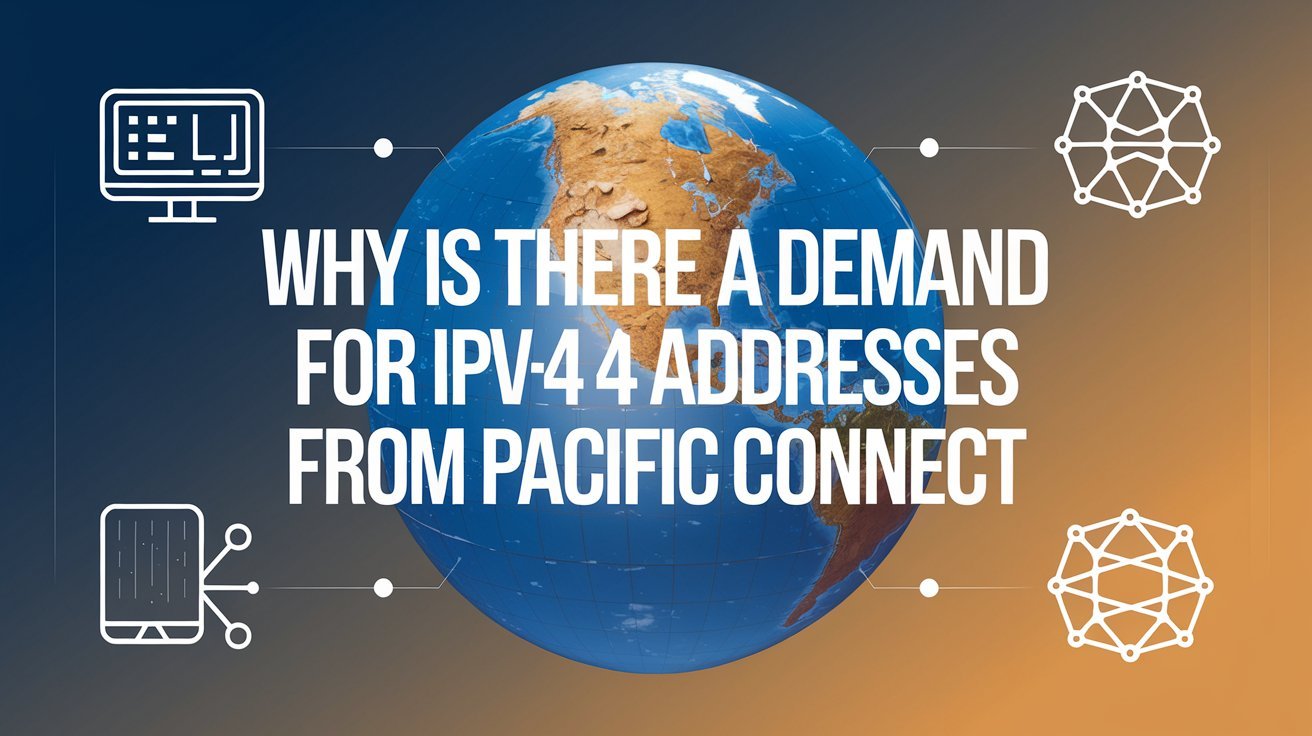
In today’s digital landscape, businesses and individuals rely heavily on the internet to conduct daily operations. Whether you’re running an e-commerce website, managing cloud infrastructure, or performing data-driven activities like web scraping, having a reliable and secure IP address is crucial. If you’ve ever heard the term buying IPv4 addresses and wondered what it means, this beginner’s guide will help you understand the basics and how to go about purchasing them.
What Are IPv4 Addresses?
Before diving into the buying process, it’s important to understand what IPv4 addresses are and why they’re in demand.
At the time of its creation, IPv4 was designed to handle 4.3 billion unique addresses, which seemed more than sufficient. However, due to the rapid growth of internet-connected devices and services, the availability of these addresses has dwindled. Despite the development of IPv6, which offers a much larger pool of IP addresses, IPv4 remains the most widely used protocol, creating a high demand for these addresses.
Why Is There a Demand for buying IPv4 Addresses?
The shortage of IPv4 addresses has led to increased demand, especially for businesses and industries that rely on stable and dedicated IPs. Several factors contribute to this high demand:
Compatibility: Many systems and applications are built around IPv4, making it easier to continue using the protocol rather than transitioning to IPv6. While IPv6 adoption is growing, it’s still not as widely supported.
Global Use: IPv4 is used globally and is the default IP address protocol for many devices and networks, making it crucial for businesses to maintain a pool of IPv4 addresses for seamless operations.
Online Security: Businesses need dedicated IP addresses to maintain security and anonymity online. By using unique IPv4 addresses, businesses can avoid IP sharing, which can sometimes lead to security risks or blacklisting due to the actions of other users.
Geographic Flexibility: Owning IPv4 addresses from different regions allows businesses to test geo-restricted content or services and target international markets.
The Process of Buying IPv4 Addresses
Now that you understand what IPv4 addresses are and why they’re in demand, let’s walk through the process of purchasing them. Buying IPv4 addresses requires careful planning to ensure you get clean, reliable IPs that meet your specific needs.
Step 1: Determine Your Needs
The first step in buying IPv4 addresses is assessing your needs. Consider the following factors:
How many IP addresses do you need? If you’re running a small business or a personal project, you might only need a handful of IPv4 addresses. Larger businesses, on the other hand, may require thousands of IPs for web hosting, email marketing, or other online activities.
Do you need IPs from specific geographic regions? Some businesses require IPv4 addresses from specific countries or regions for targeting local markets or accessing geo-restricted content.
What’s your budget?
The cost of IPv4 addresses varies depending on the provider and the number of IPs you need. Prices have risen due to scarcity, so having a budget in mind can help you find the best deal.
Step 2: Choose a Reliable Provider
Once you’ve assessed your needs, the next step is to find a reliable provider to buy IPv4 addresses from. There are many organizations that offer IP address blocks for sale, but not all are created equal. Here’s what to look for in a provider:
make your presence :using this
Reputation: Look for providers with a solid reputation in the industry. Check online reviews and testimonials to ensure they offer high-quality, unlisted IPv4 addresses.
Support: A good provider will offer customer support to help you set up and manage your IP addresses. This is particularly important if you’re new to buying IPv4 addresses and need guidance on configuration and usage.
Clean IPs: Make sure the provider guarantees clean IPv4 addresses that haven’t been blacklisted or used for malicious activities. Using blacklisted IPs can harm your business’s reputation and lead to issues like blocked emails or restricted access to certain websites.
Pricing Transparency: Look for a provider that offers transparent pricing with no hidden fees. Compare prices across multiple providers to ensure you’re getting a competitive deal.
for online presence
Step 3: Understand the Transfer Process
Once you’ve selected a provider, it’s important to understand how the transfer process works. When buying IPv4 addresses, the seller typically transfers ownership of the IP addresses to you through an IP address registry, such as ARIN (American Registry for Internet Numbers) in North America, RIPE (Réseaux IP Européens) in Europe, or APNIC (Asia-Pacific Network Information Centre) in the Asia-Pacific region.
Make sure the provider follows proper registry protocols, as these organizations track IP address ownership to ensure legal compliance. The transfer process can vary depending on the region, but your provider should handle the paperwork and ensure the process is completed smoothly.
Step 4: Configure and Use Your IPv4 Addresses
After the transfer is complete, the IPv4 addresses are officially yours, and you can start using them. However, there are a few steps you need to take before your new IPs are operational:
DNS Configuration: Set up your Domain Name System (DNS) to point to your new IPv4 addresses. This ensures that your domain names properly resolve to the new IPs.
Security Measures: Implement security measures such as firewalls and DDoS protection to safeguard your new IP addresses from potential threats.
Monitor Usage: Keep track of how your IPv4 addresses are being used. This helps ensure that they aren’t being abused, which could lead to blacklisting or other issues.
Benefits of Owning IPv4 Addresses
There are several advantages to owning your own IPv4 addresses, particularly if you manage a growing online business:
Control: Having dedicated IPv4 addresses gives you greater control over your online operations. You don’t have to worry about sharing IPs with other users, reducing the risk of disruptions or security breaches.
Improved Security: With dedicated IPs, you can set up advanced security measures like IP whitelisting and VPNs, further protecting your business from malicious actors.
Scalability: As your business grows, having your own pool of IPv4 addresses allows you to scale your online operations more easily.
Future-Proofing: While IPv6 is the future, IPv4 remains dominant. Owning IPv4 addresses now is a valuable asset, especially as they become increasingly scarce and expensive.
Conclusion
Buying IPv4 addresses is an essential step for businesses and individuals looking to establish a secure, reliable, and scalable online presence. By understanding your needs, choosing a reputable provider, and following the correct transfer process, you can ensure that your investment in IPv4 addresses pays off in the long run. With the right approach, owning IPv4 addresses will give you the control and security you need to succeed in the digital world.




